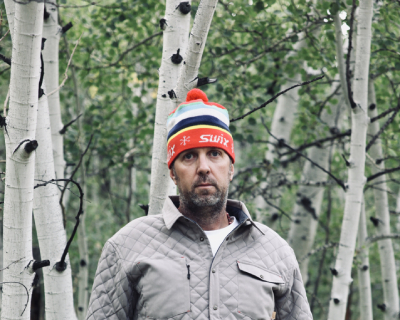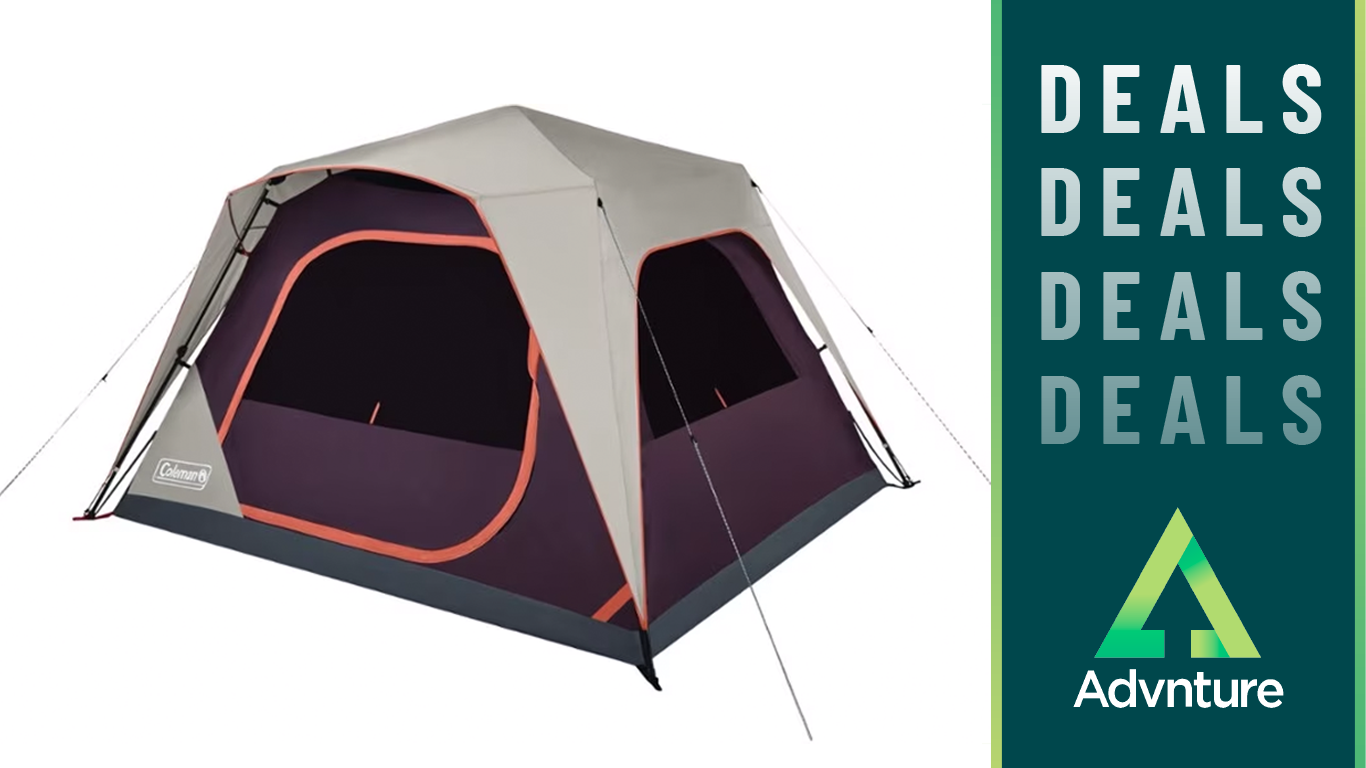Camper vans vs tents: are you better off heading for the wilderness with four wheels or canvas?
We compare camper vans and tents head-to-head, based on more than two decades of trial and error
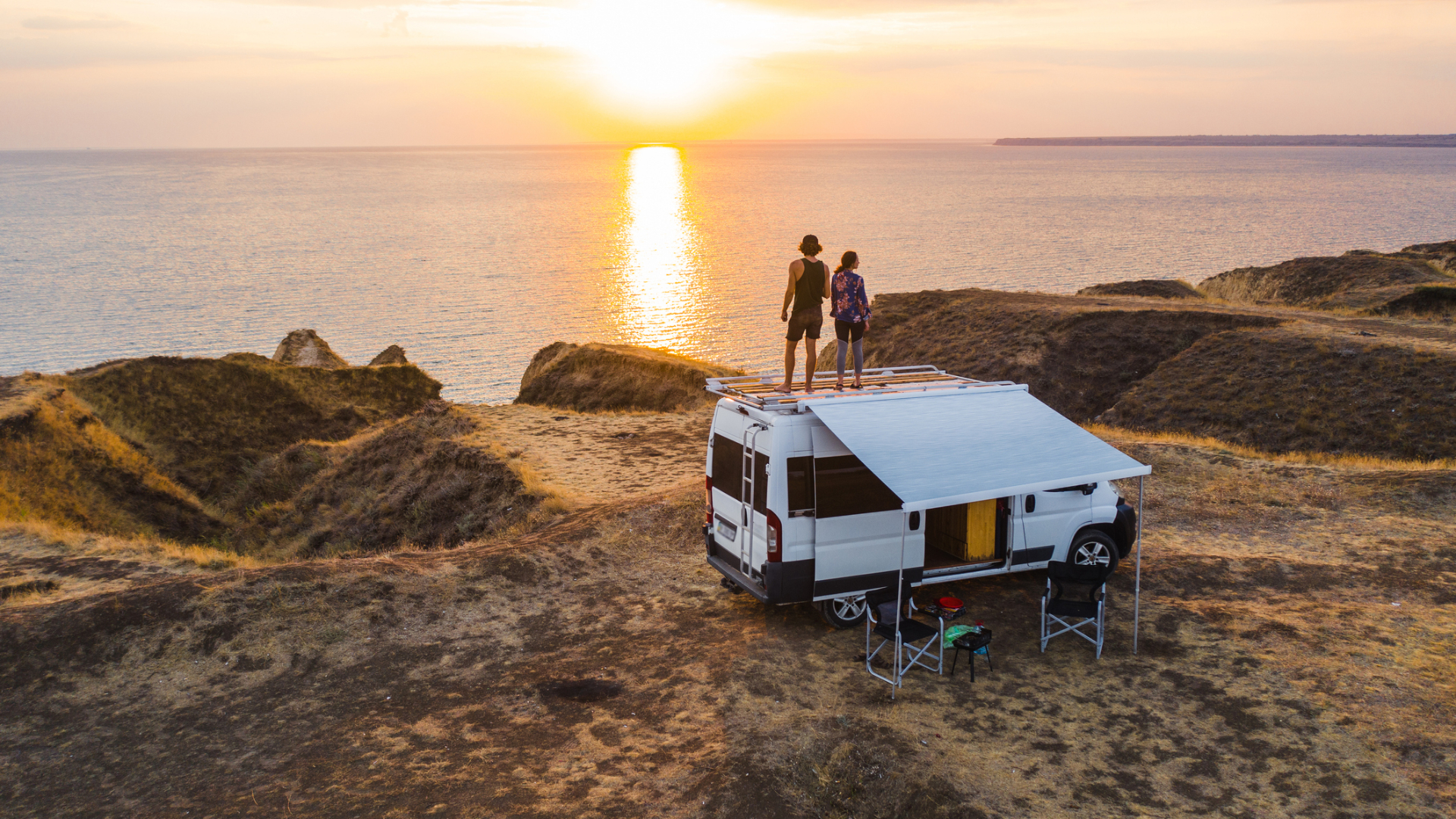
I have been backpacking since I was 10 years old, and I was spending nights outside long before that, camping in our canvas pup tent with my dad in the backyard from as early as I can remember. Let’s just say I’ve spent a few nights under the stars.
But I also have a long-held automobile obsession. Some time in high school I developed an unreasonable fandom for Volkswagen vans. At the time, Sportsmobile vans were the only really capable camper vans, and they were the Holy Grail of overland camping – or what was more commonly called car camping back then.
The term and subsequent hashtag ‘vanlife’ truly didn’t come into popularity until much later, helped by the rise of Instagram. Around the same time, ‘glamping’ – the more luxurious, meticulously appointed and photo-worthy version of tent camping – also became a thing. Seemingly, the best camping tent was suddenly a massive yurt!
So, which is the better way to sleep in the great outdoors, in a van or a tent? The answer of course, depends, on many factors. Let’s take a look at a comprehensive set of scenarios to assess camper vans vs tents – to compare when vehicles excel, with the times the lightweight portability of a tent reigns supreme.
Camper vans vs tents: comfort and quality of sleep
There’s nothing to say you can’t be just as comfortable in a tent as you can be in a van, but it somewhat depends on how much stuff you are willing to carry, or how far you have to carry it.
If you are car camping, you can make yourself pretty snug. Plenty of times I’ve hauled an air mattress, foam pads or four-inch double-wide camping pads into a tent, replete with pillows and comforters, down sleeping bags and fitted sheets, creating the ultimate cozy nest. Cots also work well inside tents, getting you up off the ground, and when paired with an inflatable camping pad, this sort of set up can quickly take you from camping to glamping.
Of course, having a nice flat spot for a tent is pretty critical for a good night's sleep, and most of the time if I’m tent camping, I’ve just got my sleeping bag and an ultralight camping pad in my sleep kit, maybe an inflatable pillow or a down jacket to help fill things out.
Advnture Newsletter
All the latest inspiration, tips and guides to help you plan your next Advnture!
My van, on the other hand, has a bed pretty much already in place. A very comfy bed. And pillows, and multiple blankets and sleeping bags – there at all times. Can you have a superior night’s sleep under the stars inside a tent? Absolutely. But let’s just say a van is quicker to set up as a bedroom on the go.
Camper vans vs tents: efficiency of set up and break down
Listen, there are many tents out there that are extremely easy to set up and break down, even with one person. I’ve tried them all. There’s even a new 2-second tent by Decathalon that pops open into a fully outfitted 3-person, 3-season abode in (you guessed it) two seconds (although it takes a bit longer to drop it and get it back in the bag). But some tents obviously take much longer to set up, especially larger, family style or glamping tents. Some of them require a large swath of flat ground that can be hard, or hard to find.
This is truly one of my favorite things about van life: as soon as you put it in park, on flat ground, boom, you’re camping. Just swivel your seat around and make a cocktail or play a game of cards. Maybe even pull the curtains for privacy. Zero hassle. And this includes roof top tents and other overlanding setups as well: nothing is as easy or self-contained, with as small a footprint, as a camper van.
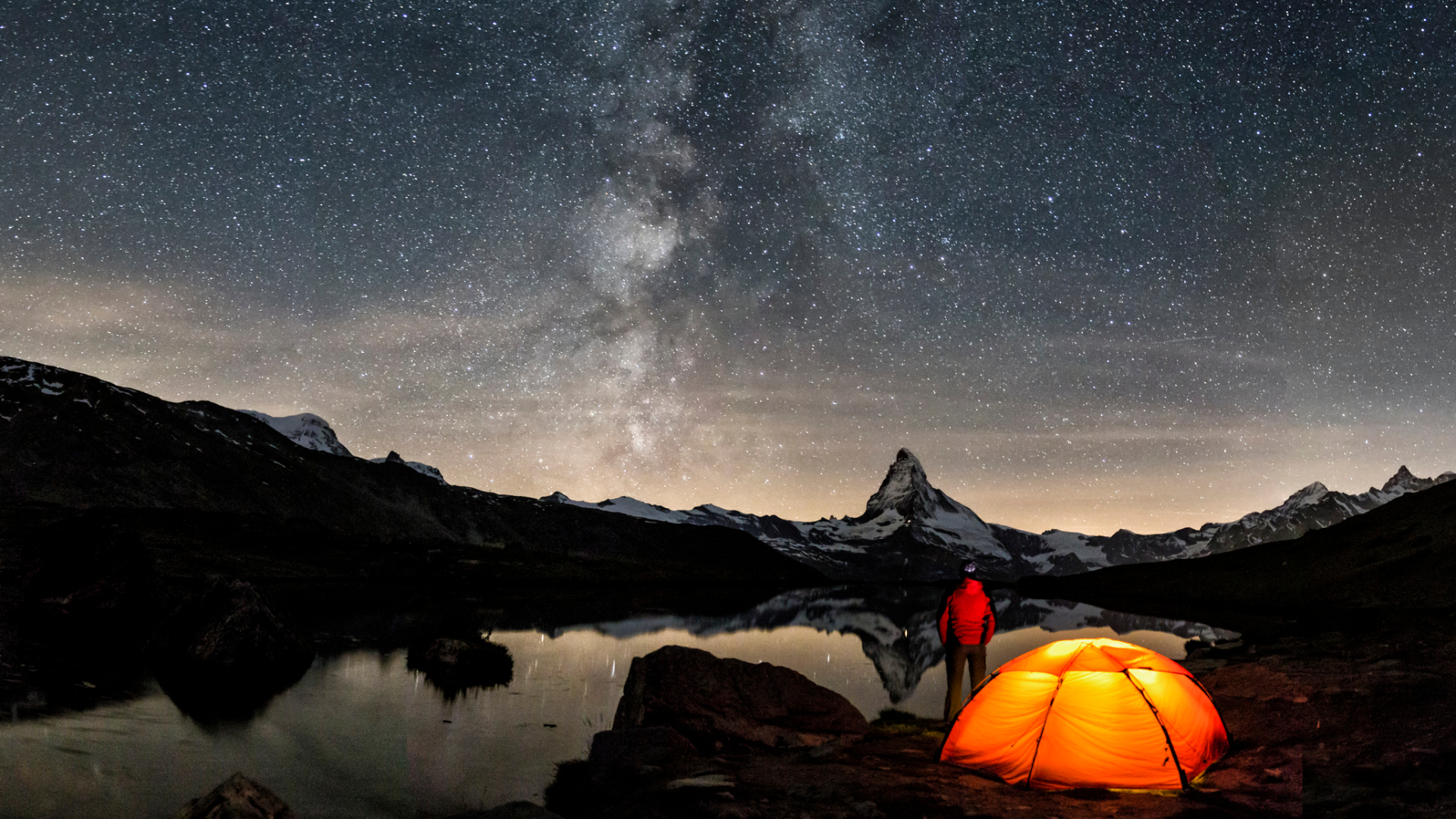
Camper vans vs tents: roominess
Roominess is somewhat related to comfort and also to mobility. When we think of tents, we generally picture either car camping, or backpacking. Roominess is a factor of tent design in the forest, but in the latter, the primary consideration is weight – specifically keeping it down. If you want a little bit of roominess, and you’re happy to pay for it in terms of extra ounces in your backpack, then take one less person than your tent is rated for. A 2-person tent sleeps one person and a backpack or a dog. A 3-person’ tent sleeps you and a non-romantic partner, plus some gear and boots. A 4-person tent sleeps you, and your partner and a dog, with plenty of bedding for comfort and cuddling.
Vans can be tight too. Just because it’s a camper van does not mean it’s roomy – especially if you have several kids and a dog. I’ve upgraded my camper van situation twice now to accommodate my growing family. One person under six-feet tall can sleep sideways in a van and it will feel like a sprawling palace. Add a tall person and a couple of dogs or a kid and all of a sudden you’re cramped. Take all of these factors into consideration when planning the layout of your camper van. And sometimes, it’s worth chucking a tent into the camper van, so some member of the family can sleep out.
Camper vans vs tents: temperature regulation
It can be tricky to regulate temperature inside any enclosed space with multiple humans – and possibly a dog or two – all breathing and warming up during the night. Sure, it’s easier to stay warm inside a van, that’s a no brainer, but it doesn’t necessarily mean you’re going to be more comfortable, as ventilation is key.
Most vans are equipped with vents and fans and sliding windows, but they still may not be as easy to ventilate as your tent – which will have windows backed by mesh that let cool air in but keep insects out.
Put it this way, I’ve had a lot of freezing nights in my van, and a lot of sweaty nights, just like I have in my tents. That said, my camper van has an air conditioner/heater unit that, when plugged into ground power, offers the ultimate in climate regulation, and makes going back to a stuffy or dusky tent somewhat unappealing – unless the views are really worth it!
Camper vans vs tents: kids
I’m going to be honest with you here and tell you that in most situations, camper vans are way better for camping with kids than tents. I’m sorry to say it, because tent camping is amazing for children in lots of ways, but a van just makes life so much easier.
Yes, kids need to learn to carry their own pack, how to pitch a tent, how to cook over a fire or a small stove, and how to spend a night outdoors – but there’s time for that. If you really want to get out camping with your kids for multiple weekends and frequent trips each season, get a van.
Kids love going camping in camper vans, which feel like a bedroom on wheels – because that’s basically what they are. Honestly, you will quadruple the amount of time you get to spend outside when you can make the experience more enjoyable for the whole family.
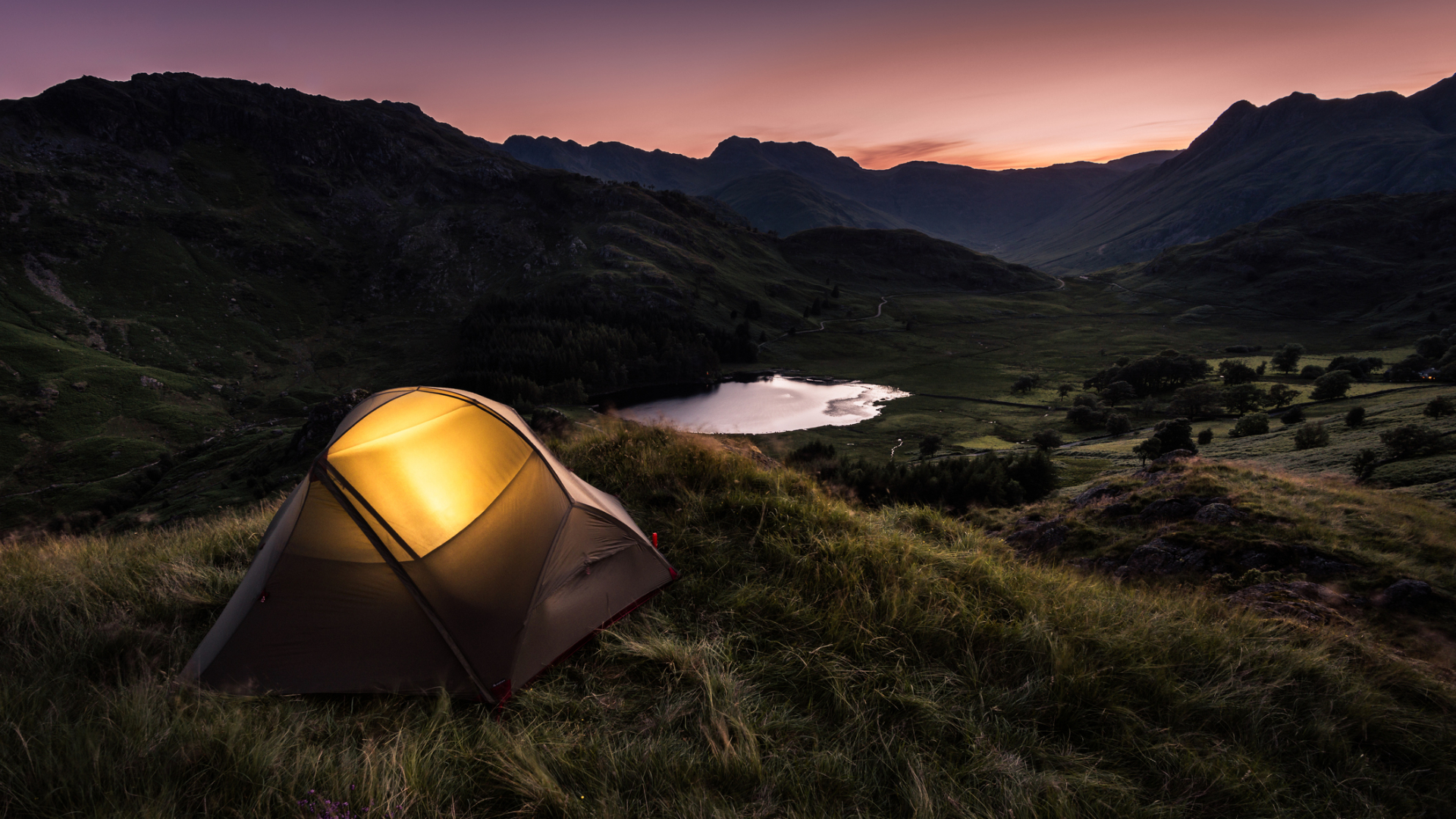
Camper vans vs tents: protection and quietness
There’s nothing more jarring than hearing a van door slide open and then slam shut first thing in the morning, whether you are camping nearby or you are still snoozing inside. That said, a tent zipper can be just as annoying (Big Agnes tried to fix that issue with powerful little magnets a few years ago). But once inside, the insulation and security inside the van can’t be beat, especially when you turn on your solar powered Bluetooth speaker and a fan and lull yourself to sleep snuggly locked inside your vehicle.
A camper van also does a good job of reducing high wind annoyance that can make sleeping in a tent almost impossible sometimes, if it is literally blowing in and smacking you in the face all night, or you think it’s going to rip the pegs out of the ground and fly the tent away with you in it (who’s been there?). Let’s face it, a tent isn’t much good at keeping noise out, but hopefully where you’ll be camping, the main noise will be the dawn chorus of wild birds wishing you a good morning.
Camper vans vs tents: mobility
This depends on how you define ‘mobility’. A tent is the ultimate mobile shelter. For a long walkabout, a backpacking trip, a thru-hike, an expedition, you have to have a tent or some form of bivvy sack. You can quickly pack up and move miles away each day as you please.
But then again, a camper van is the ultimate in mobility as well. A camper van allows you to take your whole house on the road with you, kitchen, bath, seating, sleeping, and supplies, as long as you’ve got money for petrol, your life is fully mobile if you so choose when it comes to a camper. Also, some tents are highly mobile, while others require a vehicle to even transport them, so focus on your end use carefully when choosing your shelter.
Camper vans vs tents: practicality as a basecamp
I like using my camper van as a basecamp very much in most instances. Although for a true basecamp, I will almost always have a cooking shelter, awning, and other tents set up as well. So the camper van sort of becomes the center of a proper basecamp, where there are cold drinks and tunes, as well as comfy chairs and indoor seating, should the weather turn inclement.
But with awnings and clothes lines hanging from the van, it’s not really going anywhere, so in many cases a large tent or several large tents and awnings make a much better base camp – at least you can use your vehicle to pop out and get supplies or do a day trip without wrecking the base.
And for some adventures – river trips for example – tents are the only option, and a perfectly good one too.
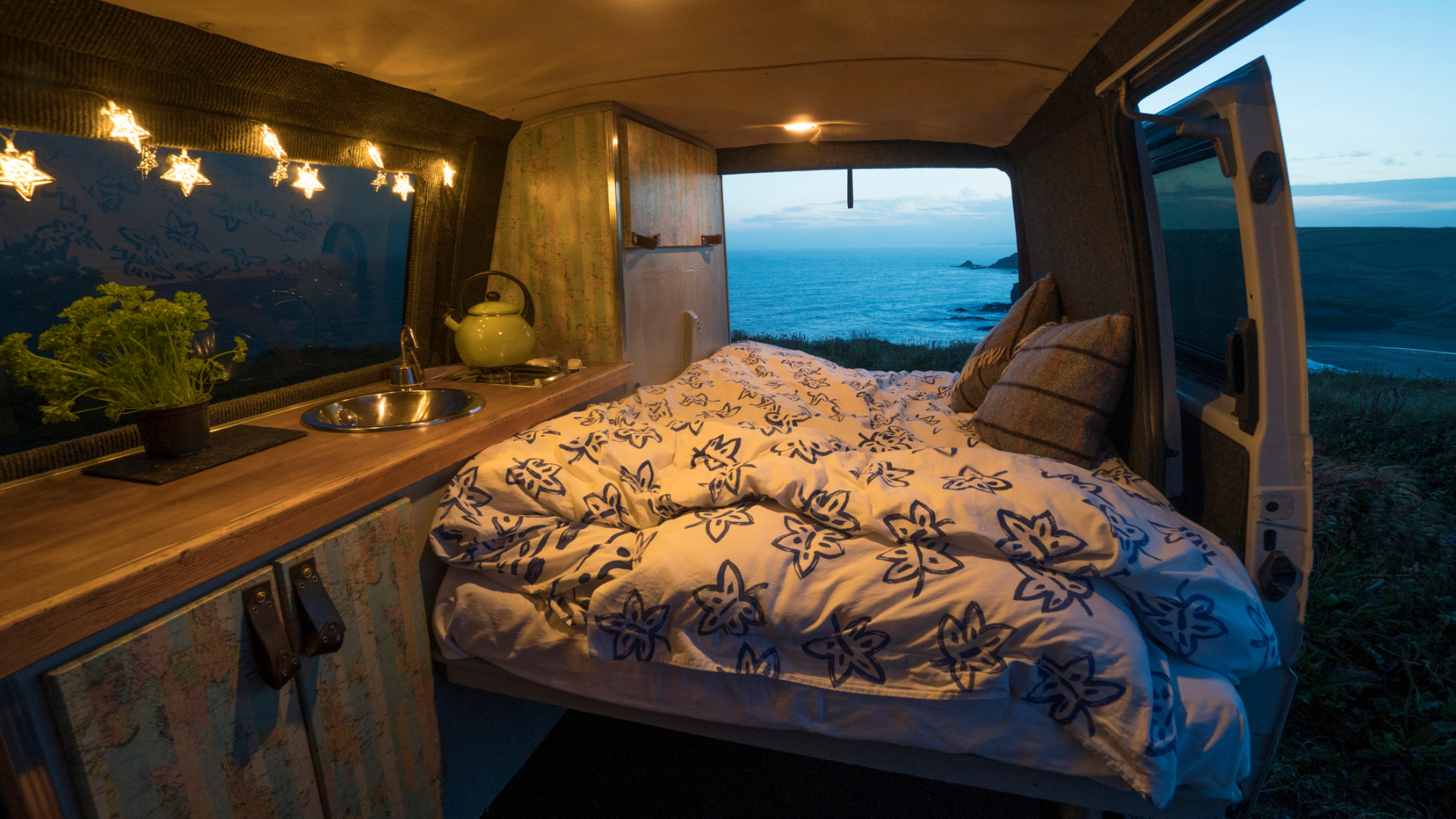
Camper vans vs tents: viewing wildlife
There’s nothing that will make you feel so small and vulnerable as being surrounded by a massive herd of elk at dusk, while settling into your sleeping bag after a long day on the trail. And who among us hasn’t been awakened by rogue wildlife sniffing up and down the tent in the middle of the night?
This is not to say you can’t comfortably view wildlife from the front seats of your van, especially for example during elk mating season in Rocky Mountain National Park, but by and large, you’re going to encounter and have the opportunity to see more wildlife when tent camping far away from the trailhead.
Camper vans vs tents: privacy
Let’s face it, this can go either way. There’s something really special and memorable about nights spent with your partner in a tent, far from everywhere, in the midst of the wilderness, a long way from busy campsites. If you are in a commercial campsite, or at a festival, then a vans will offer a whole lot more privacy than a flimy piece of canvas.
Camper vans vs tents: access to the best campsites
Let’s face it, you have to walk to the very best campsites. The ones nestled down by a remote forested creekside, with the breathtaking mountain vistas, sea views, unreal sunrises and absence of other people.
But, then again, sometimes the ‘best’ campsites are the ones with running water. Maybe there’s a playground nearby, or easy river access for fishing. Yes you have to earn the best campsites, and that means tent camping, but just being outside is ultimately the most important thing.
| Header Cell - Column 0 | Camper vans | Tents |
|---|---|---|
| Comfort | Superior | Ranges from basic to glamping |
| Ease of use | Park and you're camping | More set up and breakdown required |
| Temperature regulation | More insulation, less ventilation | Less insulation, more ventilation |
| Camping with kids | Easiest | More challenging |
| Security | Higher | Lower |
| Protection from the elements | Superior | Moderate |
| Wildlife viewing | Moderate | Superior |
| Access | Only to campgrounds that allow vans | Access to call camping |
A writer, photographer and adventurer with two decades experience as a multimedia developer, curator, and award-winning journalist, Aaron is a former contributing editor at Backpacker, a contributing editor at Elevation Outdoors magazine and regular contributing writer and photographer to many others including Men's Health and Freeskier. Aaron lives with his family in the high-country of Nederland, Colorado, where he and his wife are raising two kids to love thin air, fresh powder, and the flow state. He always carries extra gloves, hats and socks in the backcountry due to multiple episodes of past trauma over the last 30 years. Follow his adventures at @definitelywild
